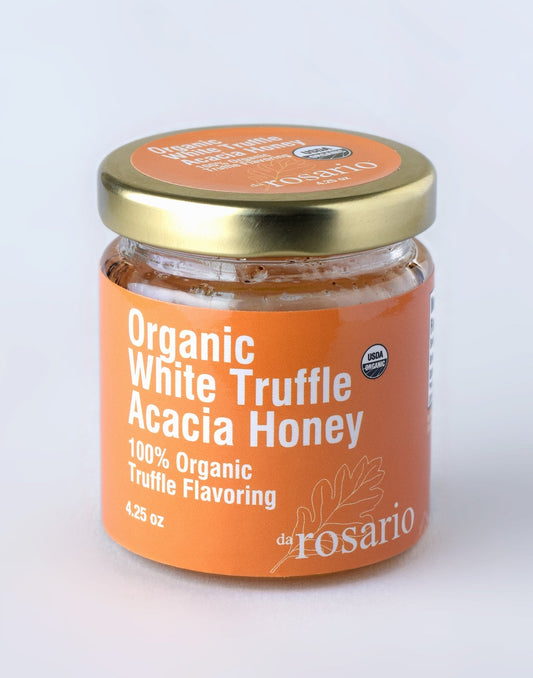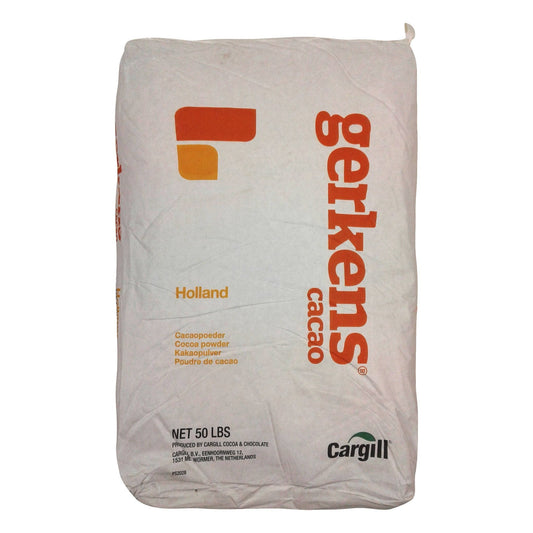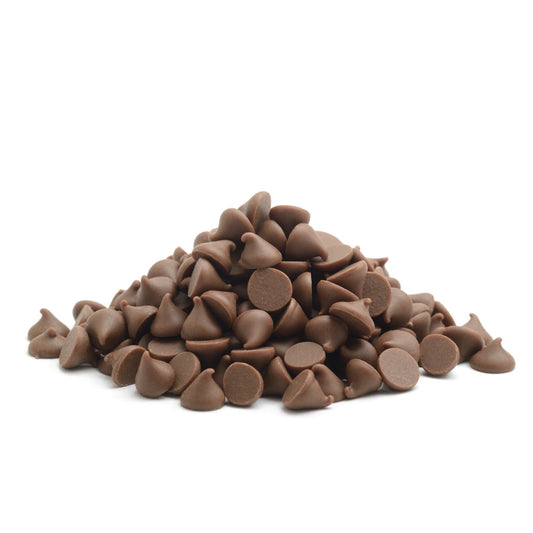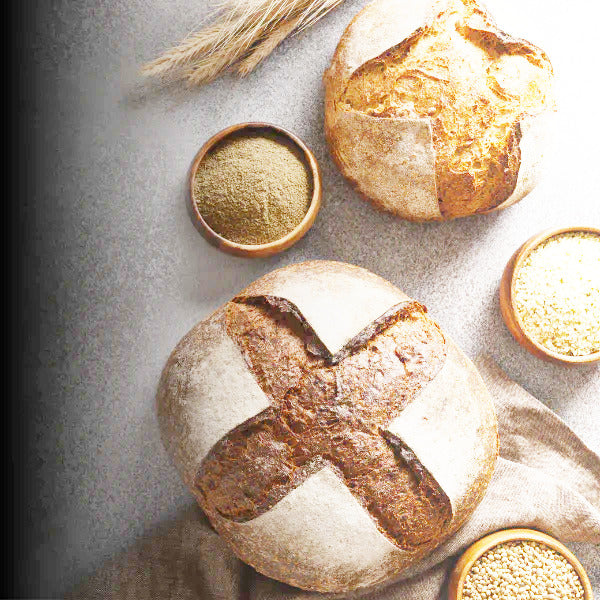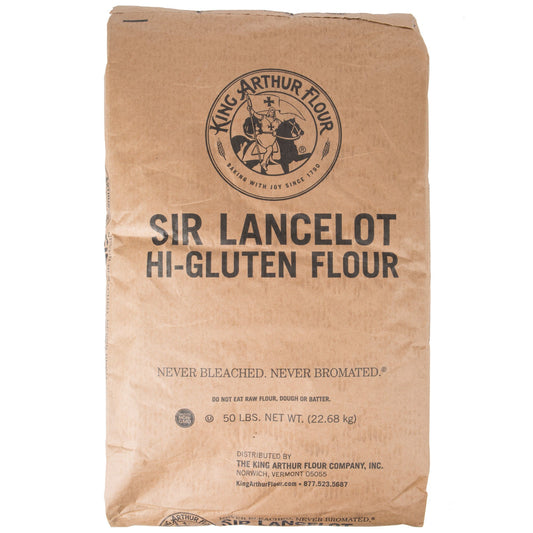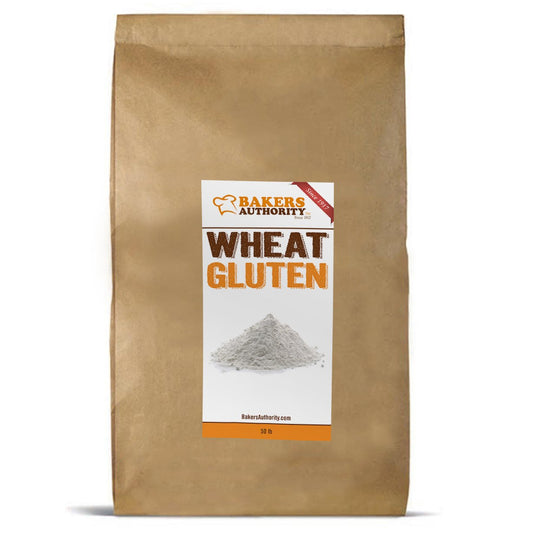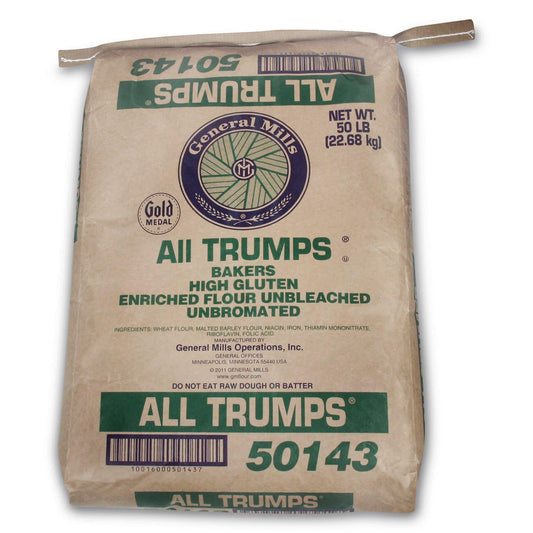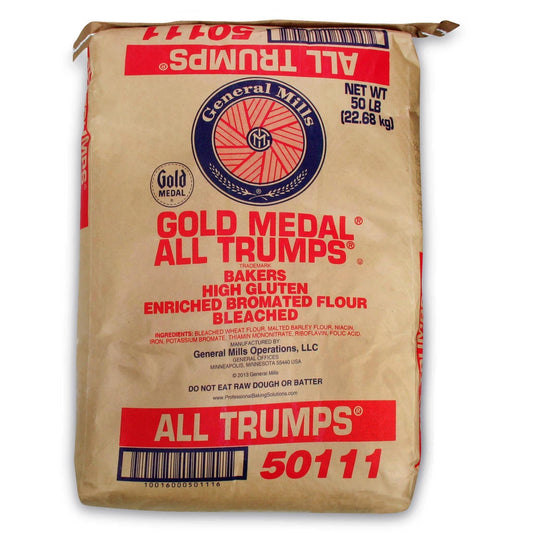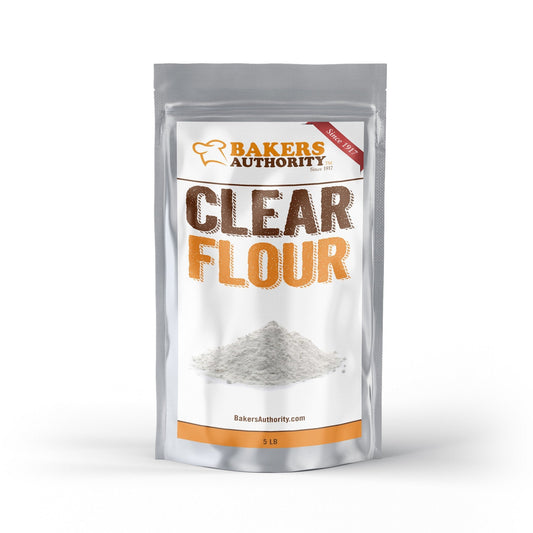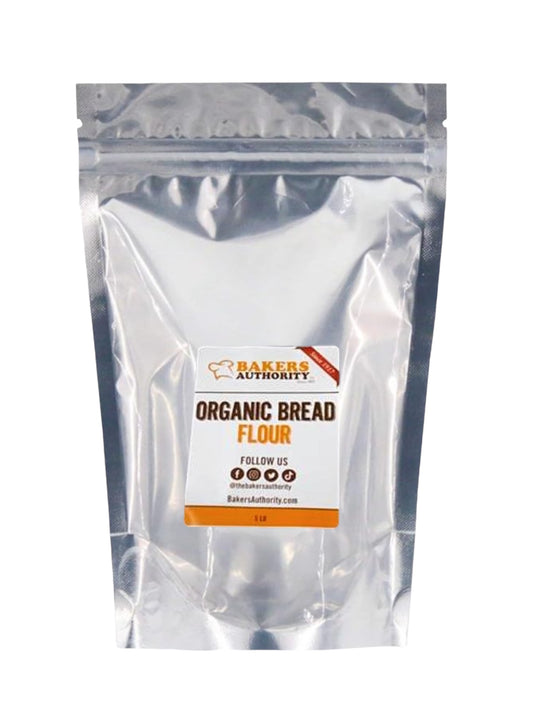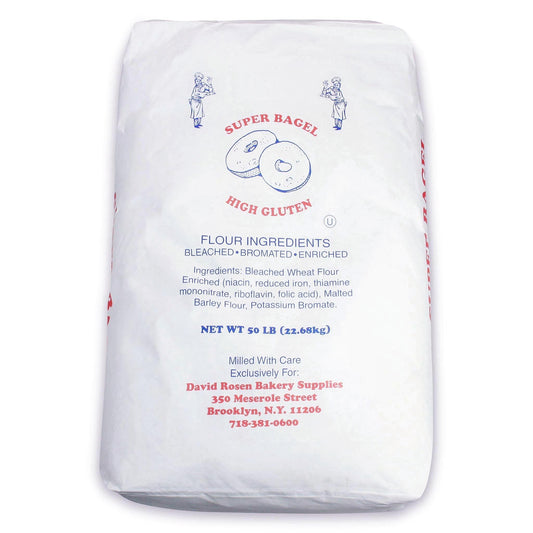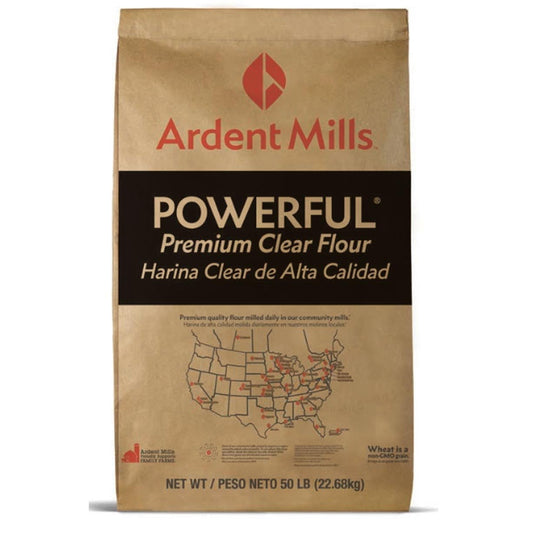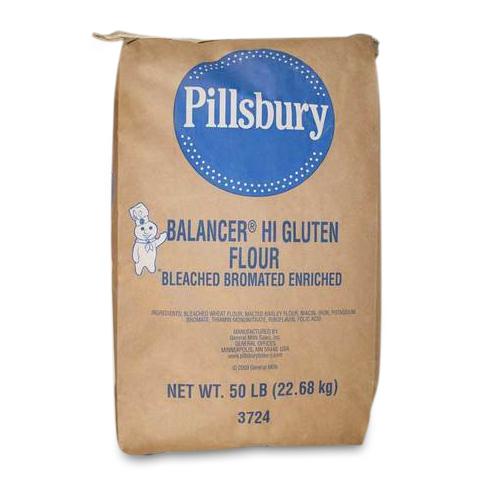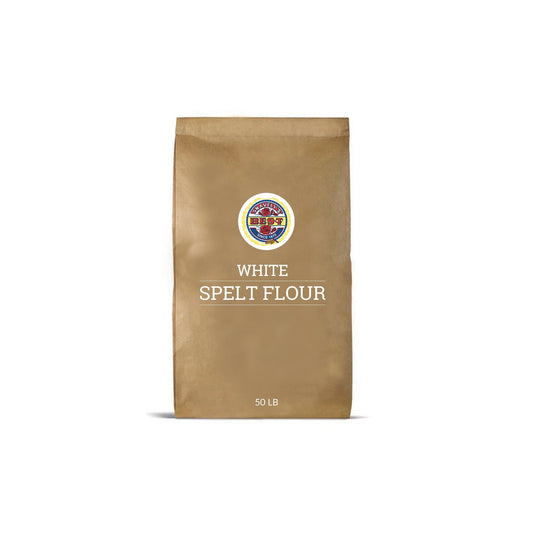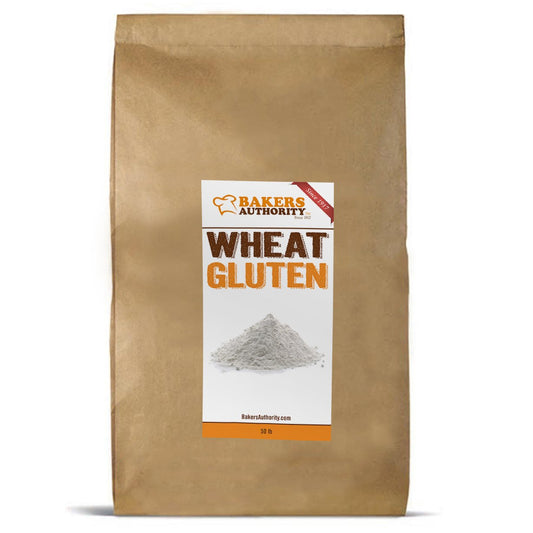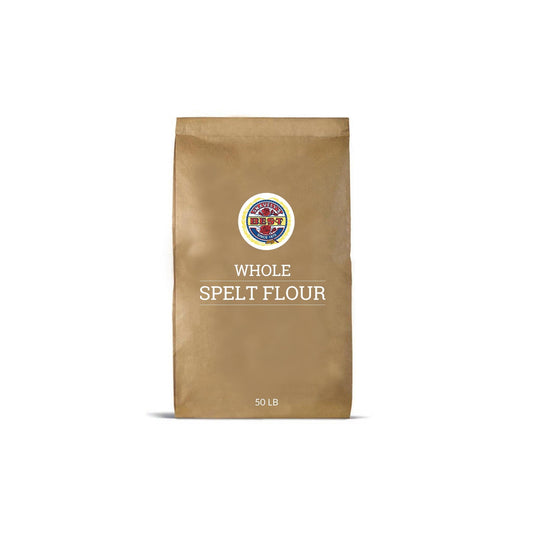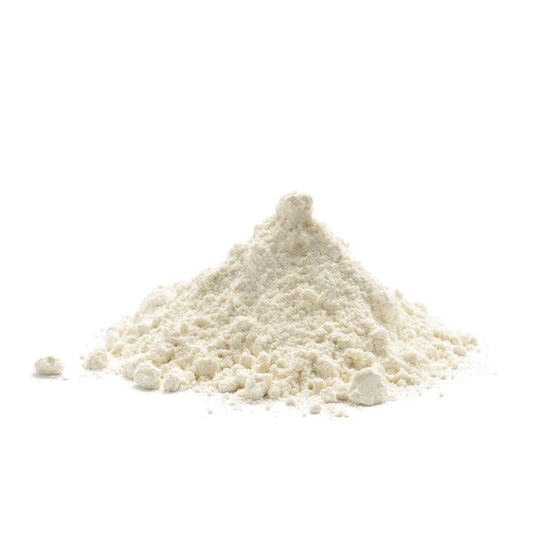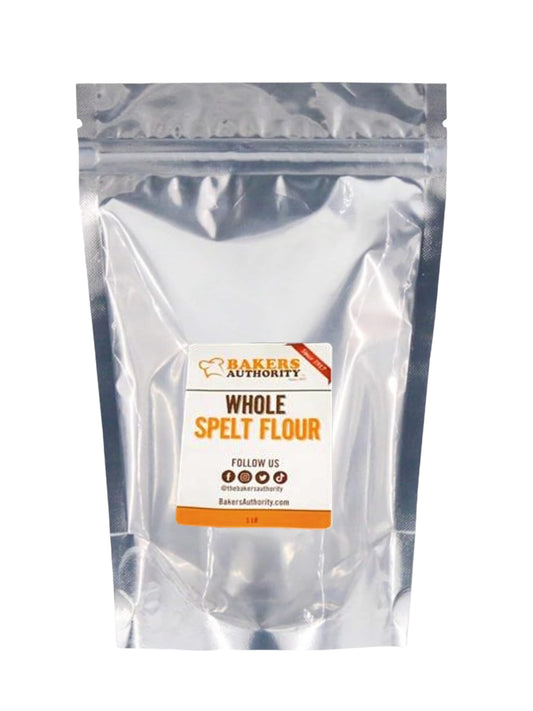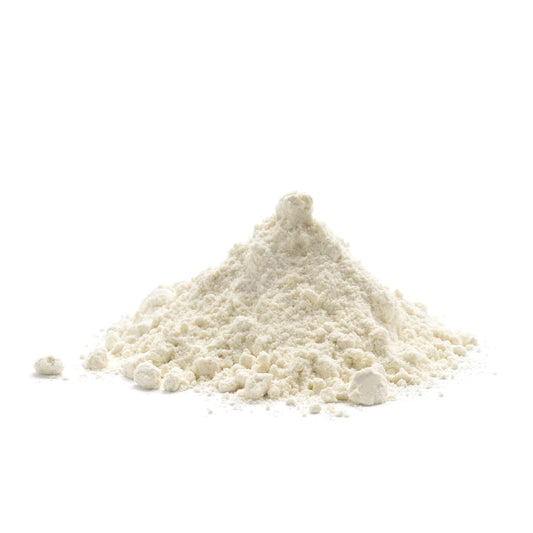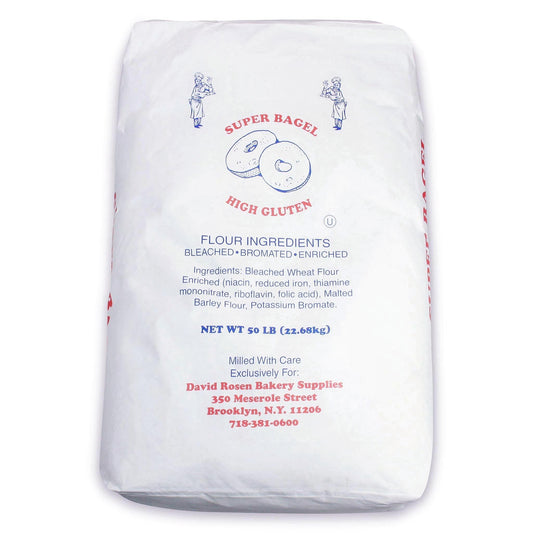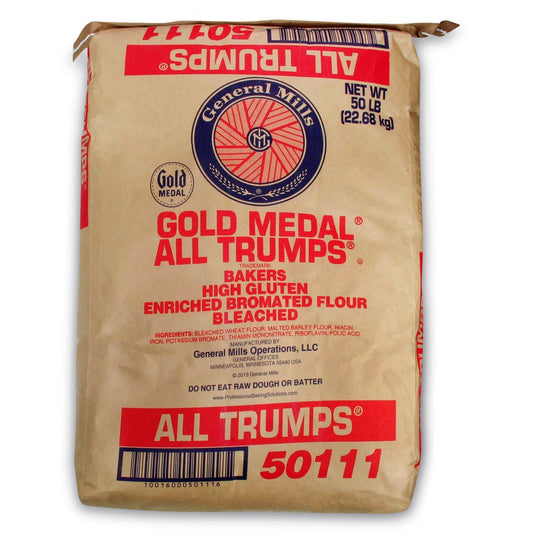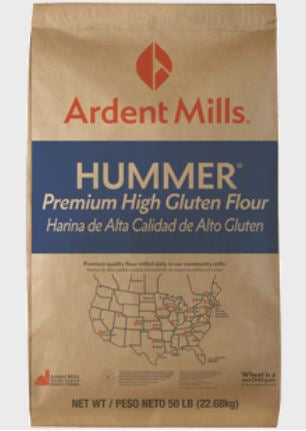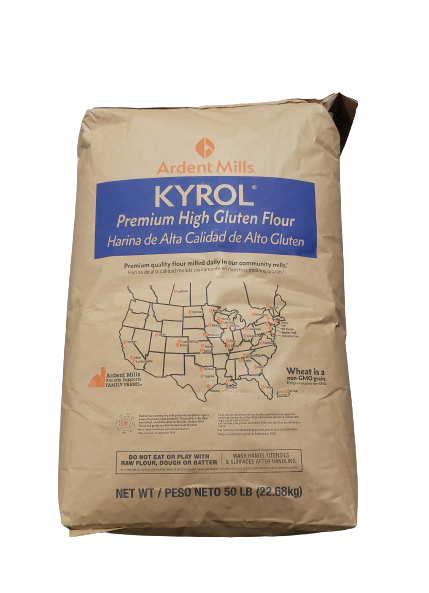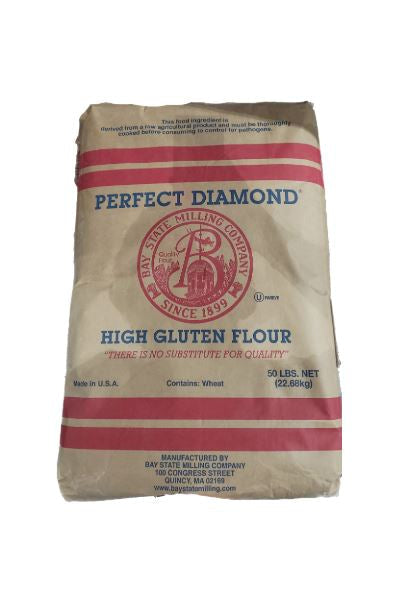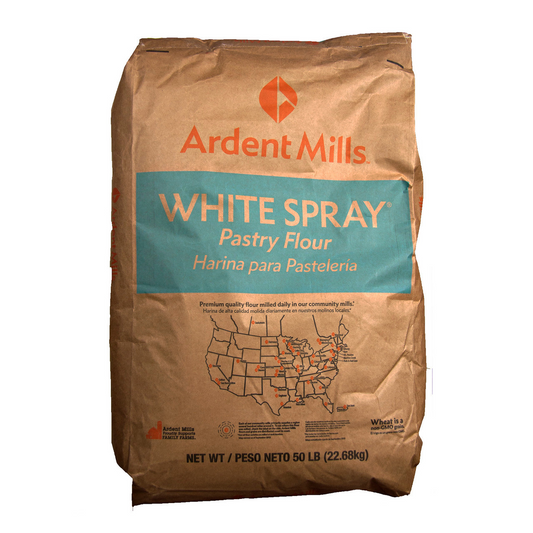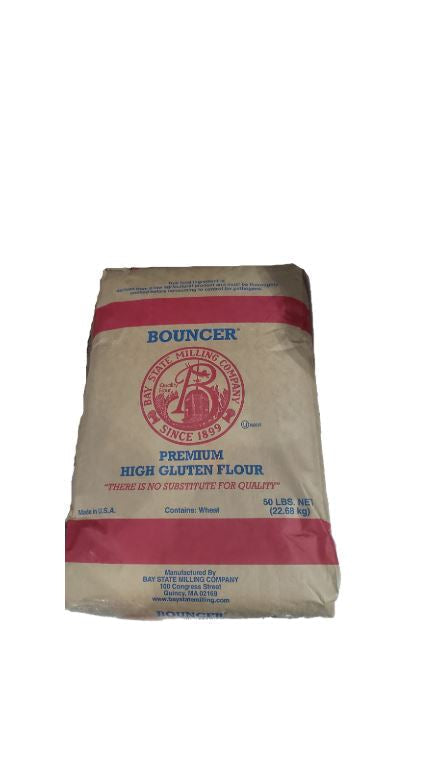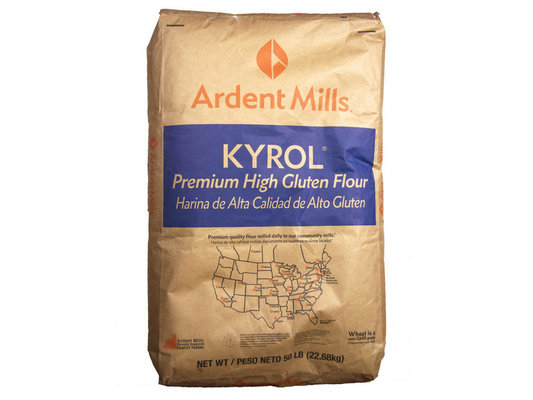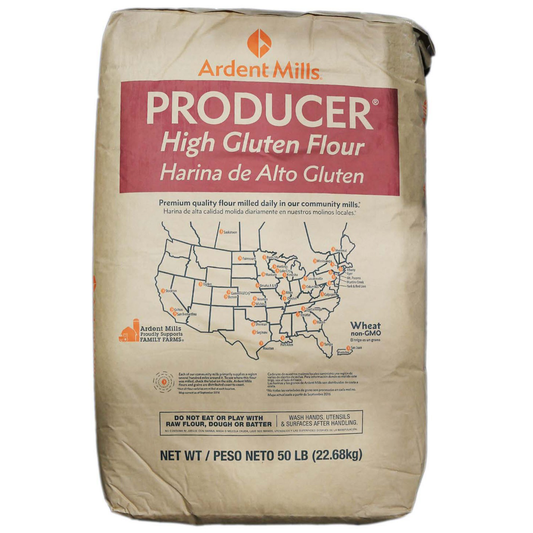-
Vendor:King Arthur
Hi Gluten Flour - Sir Lancelot 50lb
Regular price $41.05Regular priceUnit price per -
Vendor:Bakers Authority
Vital Wheat Gluten 50 LB
Regular price $126.25Regular priceUnit price per -
Vendor:General Mills
All Trumps Flour - High Gluten (Unbleached, Unbromated)
Regular price $37.57Regular priceUnit price per -
Vendor:General Mills
All Trumps Flour - High Gluten (Bleached & Bromated)
Regular price $35.91Regular priceUnit price per -
Vendor:Bakers Authority
5LB Clear Flour/00 Flour 5LB
Regular price $6.26Regular priceUnit price per -
Vendor:Bakers Authority
Organic Bread Flour 5LB (10-11.5% protein)
Regular price $8.94Regular priceUnit price per$8.78Sale price $8.94 -
Vendor:Bakers Authority
Super Bagel High Gluten Flour
Regular price $33.05Regular priceUnit price per -
Vendor:Ardent Mills
Powerful Clear Flour/00 Flour
Regular price $32.65Regular priceUnit price per -
Vendor:Pillsbury
Balancer Hi Gluten Flour 50lbs.
Regular price $35.91Regular priceUnit price per -
Vendor:LA MILANAISE
Organic White Spelt Flour 50 LB
Regular price $102.75Regular priceUnit price per -
Vendor:Bakers Authority
5LB Vital Wheat Gluten
Regular price $23.51Regular priceUnit price per -
Vendor:LA MILANAISE
Organic Whole Spelt Flour 50 lb
Regular price $84.55Regular priceUnit price per -
Vendor:Bakers Authority
High Gluten Flour (Unbleached/Unbromated) 5LB
Regular price $6.94Regular priceUnit price per -
Vendor:Bakers Authority
Organic Whole Spelt Flour 5LB
Regular price $8.39Regular priceUnit price per -
Vendor:Bakers Authority
High Gluten Flour 5LB
Regular price $6.90Regular priceUnit price per -
Vendor:Super Bagel
Super Bagel High Gluten Flour (Yoshon)
Regular price $34.85Regular priceUnit price per -
Vendor:General Mills
All Trumps Flour - High Gluten (Yoshon)
Regular price $37.80Regular priceUnit price per -
Vendor:Ardent Mills
Hummer High Gluten Flour - 50 LB
Regular price $28.96Regular priceUnit price per -
Vendor:Ardent Mills
Kyrol High Gluten Flour
Regular price $30.77Regular priceUnit price per -
Vendor:Bay State Milling
Bay State Perfect Diamond High Gluten Flour
Regular price $33.80Regular priceUnit price per -
Vendor:Ardent Mills
White Spray Pastry Flour - 50lb
Regular price $27.59Regular priceUnit price per -
Vendor:Bay State Milling
Bouncer High Gluten Flour
Regular price $34.17Regular priceUnit price per -
Vendor:Ardent Mills
(Yoshon) KYROL
Regular price $34.43Regular priceUnit price per -
Vendor:Ardent Mills
Producer High Gluten Flour
Regular price $35.83Regular priceUnit price per
Commercial grade high gluten flour is perfect for baked goods requiring extra strength. It gives an extra chew to your bread and a higher rise to your whole-grain loaves. High gluten flour helps you bake lusty, chewy artisan breads and whole-grain breads with a hearty, lofty texture. It's good for breads that require long fermentation like no-kneads. It's also great for dense, chewy breads like bagels, crusty rolls, artisan hearth bread, and pizza crusts — it adds a toothsome quality and a bakery-worthy interior.
Showing 1-24 of 25
Additional Resources
Frequently Asked Questions
-
What is high gluten flour and how does it differ from regular all-purpose flour?
- High gluten flour contains a higher percentage of gluten protein than regular all-purpose flour. This protein gives bread and other baked goods their structure and chewiness. While all-purpose flour is versatile and can be used for various recipes, high gluten flour is specifically favored for breads, especially those with a chewy texture like bagels or artisan breads.
-
Why would a commercial baker choose high gluten flour over other types of flour?
- Commercial bakers often prefer high gluten flour for breads and pastries that require a strong gluten network. It provides superior dough elasticity and extensibility, resulting in baked goods that have better volume, structure, and shelf-life.
-
How does the moisture absorption rate of high gluten flour compare to other flours?
- High gluten flour typically has a higher moisture absorption rate than lower protein flours. This means bakers may need to adjust the amount of liquid in their recipes when using high gluten flour to achieve the desired dough consistency.
-
Can I replace all-purpose flour with high gluten flour in all of my recipes?
- While you can use high gluten flour in place of all-purpose flour, it may not be ideal for all recipes. High gluten flour can make some baked goods too chewy or dense, such as tender pastries or cakes. It's best to use high gluten flour in recipes that specifically call for it or where a chewy texture is desired.
-
How should I store high gluten flour to maintain its quality?
- Like all flours, high gluten flour should be stored in a cool, dry place, away from direct sunlight. For extended shelf life, you can store it in an airtight container or resealable plastic bag in the refrigerator or freezer.
-
Can high gluten flour be used for sourdough breads?
- Yes, high gluten flour is an excellent choice for sourdough breads. Its higher protein content can accommodate the extended fermentation times typical of sourdough recipes, leading to breads with great volume, structure, and a pleasing chewy texture.
-
How does the cost of high gluten flour compare to other flours?
- The cost of high gluten flour can be slightly higher than that of all-purpose flour due to its specialized nature and higher protein content. However, many commercial bakers find the investment worthwhile because of the superior results in certain baked goods.

